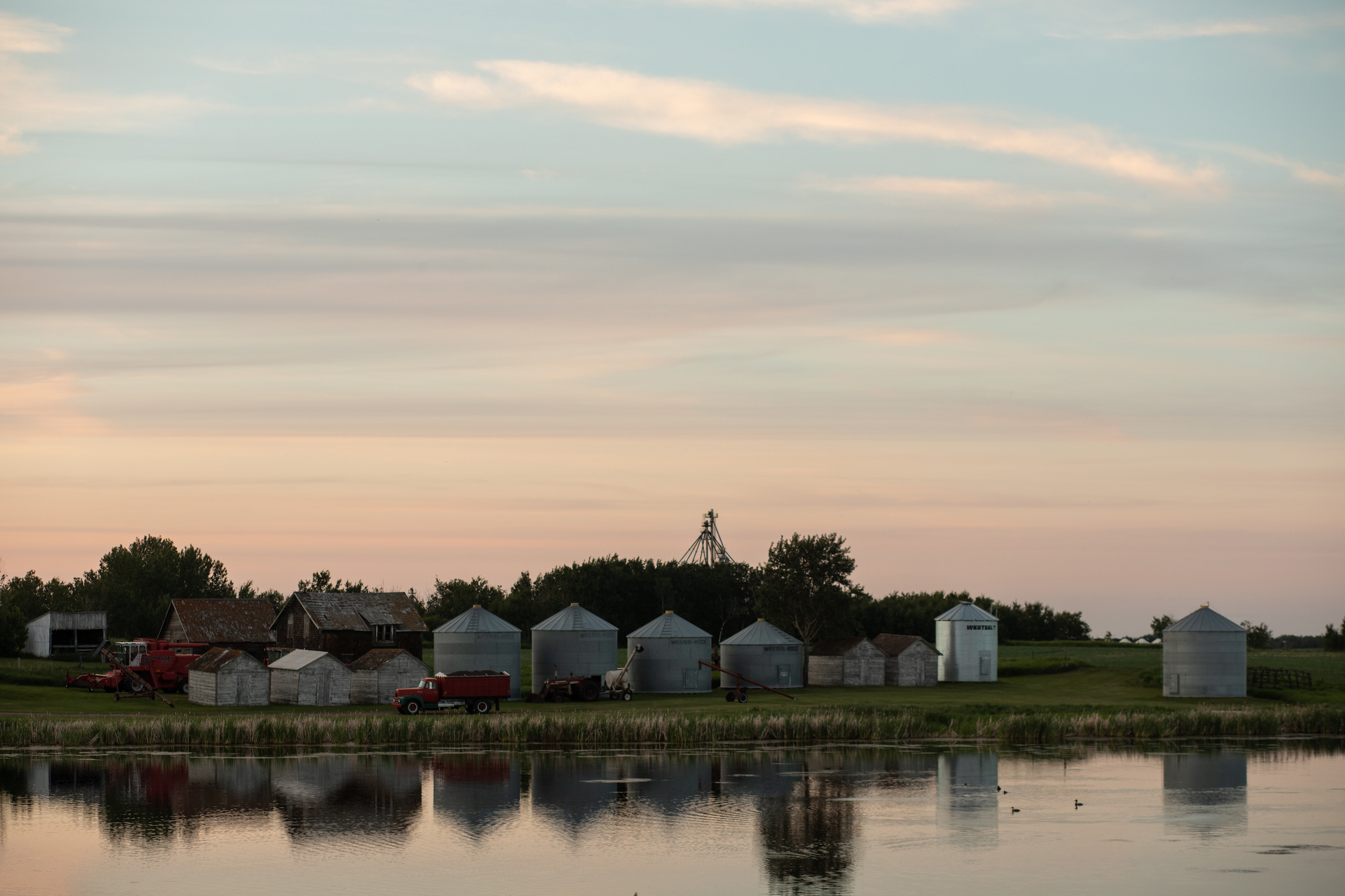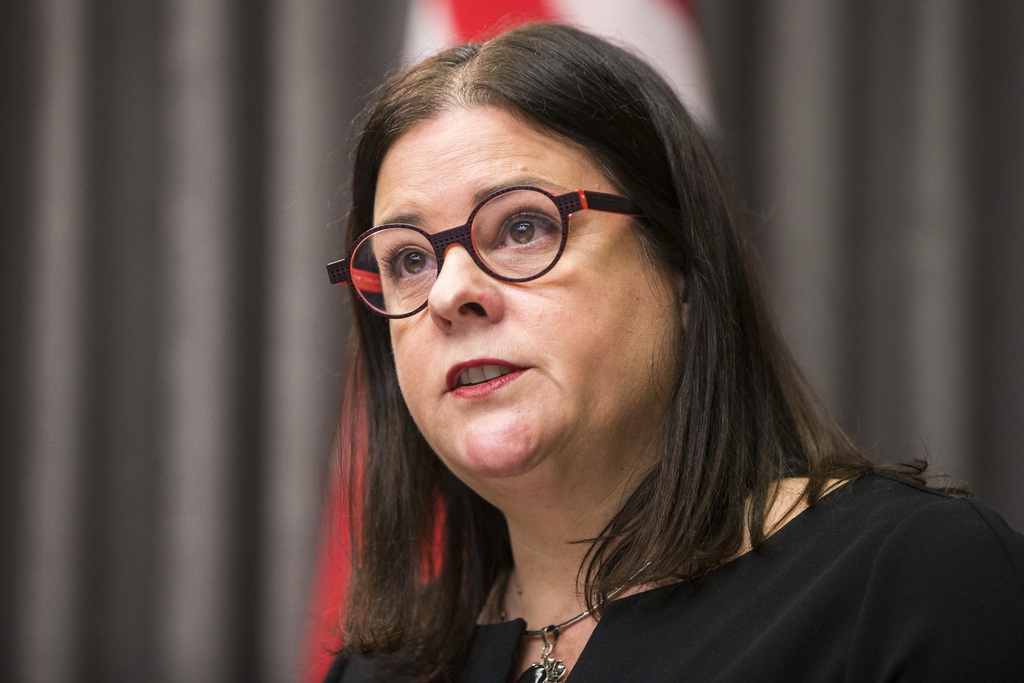
5 things to know about Winnipeg’s big sewage problem
115 billion litres, 70 years to fix, $5.5 billion in lawsuits
Climate change remains a polarizing and partisan issue for Manitobans, but new polling suggests more rebates and incentives for reducing emissions would resonate across party lines.
A poll conducted earlier this month asked Manitobans what they think about climate change, its causes and the province’s policies. About two-thirds of Manitoba residents believe climate change is real and caused by human activity, while eight per cent firmly believe climate change isn’t real. Another quarter of respondents were less entrenched in their beliefs, saying climate change was real, but they did not necessarily believe it was caused by humans.
“That’s not an overwhelming majority but it’s a solid majority,” Mary Agnes Welch, principal researcher with Probe Research, said.
The poll results suggest Manitobans have views similar to national averages. A separate survey conducted last fall found 68 per cent of Canadians agree that climate change is human caused. Meanwhile, a 2021 study conducted by researchers at Cornell University found more than 99 per cent of peer-reviewed scientific papers concluded climate change is human caused.
In Manitoba, young people, Winnipeg residents, university graduates and left-leaning voters were most likely to affirm climate change as a human-caused reality. Rural residents, older Manitobans and people with lower levels of education (high school degree or less) were among those more likely to say they believed climate change isn’t a reality at all.
“We see that polarization in a lot of other areas, based on education more than anything else, and this is an example of where that education gap is really significant,” Welch said.
Between the two groups, nearly a quarter of Manitobans fell into the camp of those who believe in climate change, but aren’t sure humans are to blame. For Welch, that group is a hopeful one.
“Those are the people that may be swayed in the future, that haven’t made up their minds,” she said. “They’re not, perhaps, as polarized as some others and they could be convinced, their behaviours could be nudged a little bit.”

Little seemed to unite those in the middle ground, Welch said. Respondents in that group were split among regional, educational and income demographics, however they predominantly identified as Conservative or undecided voters. About 30 per cent of undecided voters and 40 per cent of Conservative voters fell into this category.
Despite the fact Conservative voters were more likely than other political groups to say climate change wasn’t real, “all the Tories are not clustered necessarily in that ‘I don’t believe this is happening at all bar,’ ” Welch said. “There’s a little bit of hope there.”
According to Melanee Thomas, associate professor of political science at the University of Calgary, issues like climate change are “tricky” because people generally agree on the outcome — like having a clean environment — but disagree on how to get there, leading to a kind of emotional polarization on the issue.
“Climate change can be seen as polarizing because it taps into us-versus-them existential stuff,” Thomas said.
People may perceive “part of their identity, part of their prosperity, parts of their life that they hold dear” will be threatened by a changing climate — or the social changes needed to respond to climate change, Thomas said, adding those perceptions can inspire what she called an existential worry.
Stances that are intimately tied to partisanship or economic beliefs, Thomas said, can be very difficult to change.
Meanwhile, just over two-thirds of respondents agreed the province isn’t doing enough to tackle climate issues. Just 15 per cent of respondents thought the province has been doing a good or excellent job addressing climate change. Those respondents were evenly split along regional lines, but skewed slightly older and significantly more conservative than the 27 per cent who believe the government is doing a fair job and the 44 per cent who rate the province’s climate policies as poor.
Another 15 per cent weren’t sure how to rate the government’s performance at all.
According to Welch, that poor provincial performance review is in part because the average resident may not be able to point to particular government policy on climate issues.
“I don’t know if I can point to one memorable thing, or one policy, or something that’s really changed — beyond fighting with the feds over the carbon tax,” Welch said. “This kind of question makes you think: ‘what have they done,’ which I think gives you that unsure number, but also feeds into that overwhelmingly negative view.”
Manitobans, however, were aligned on the most appealing incentives to help reduce carbon emissions and address climate change.
While the same groups most likely to identify climate change as a human-caused crisis were likely to support any and all emission reduction strategies, fully 90 per cent of respondents were in favour of grants and rebates for homeowners to purchase energy efficient appliances, heating systems and other at-home emissions reduction options. About 50 per cent of Manitobans showed strong support for such an incentive.
“That’s everybody,” Welch said. “Even people who are climate change skeptics, who are lower income or education, they want those kinds of rebates and those grants.”
Already, Efficiency Manitoba, a Crown corporation tasked with helping lower Manitoba’s carbon pollution by decreasing reliance on natural gas, offers incentives for homeowners looking to boost energy efficiency. Programs range from rebates for home energy retrofits, heat pump installations and solar panels, to recycling programs for old fridges and freezers, to rebates for Manitobans looking to switch to more efficient insulation, windows and doors. According to its 2022 annual report, Efficiency Manitoba handed out nearly $26 million in rebates and incentives to residents and businesses last fiscal year.
Incentives for purchasing electric cars were slightly less universal, but approximately two-thirds of Manitobans indicated they would support such an incentive.
On the flip side, Manitobans were overall less convinced by incentives focused on increased taxation for more carbon-intensive activities. Respondents were split 50-50 on their support for an extra tax or fee on gas-guzzling vehicles like pickup trucks and SUVs. Two thirds of respondents — including a third of NDP voters and more than 80 per cent of conservative voters — were against increases to carbon pricing.
Though it is often referred to as a “carbon tax,” a 2021 decision from the Supreme Court of Canada specifically noted the federal government’s carbon pricing plan is “not a tax,” saying “this has nothing to do with the concept of taxation” and is instead a constitutionally valid regulatory charge.

Welch said she wasn’t surprised by Manitobans’ rejection of carbon pricing increases. While some of the dissent could be attributed to positions on climate change more broadly, and still more could be linked to an overall aversion to extra taxation in a time of financial strain, Welch suggested some respondents are simply not convinced carbon pricing really works.
Former premier Brian Pallister made headlines taking the federal government to court after a “made-in-Manitoba” climate plan was rejected by federal leaders in 2019. The Manitoba government saw the losing end of the two-year court battle before then newly elected Premier Heather Stefanson chose not to appeal the decision in 2021. Since then, carbon pricing has put pressure on Manitobans at the pump, but has been counterbalanced by a series of rebate cheques handed out en-masse by the provincial government.
“There’s a lot of confusion around it and I think there are even some on the progressive side that are not really sure we’re seeing a lot of impact on climate change from the carbon tax,” Welch said. “It’s a bit of a mess in people’s minds.”
Overall, Manitobans seemed — predictably — to prefer “less punishment, more nudges” for climate change policy, Welch explained.
By and large, Manitobans are “quite middle of the road” when it comes to their views on climate issues, Welch said. While the gaps between urban and rural residents, younger and older Manitobans and those with higher or lower education highlight the “cleavages” in the way Manitobans think — but there’s hope to be found in the areas of common ground.
The Winnipeg Free Press-Probe Research poll surveyed 1,000 Manitobans between March 8 and 20. More than 700 respondents were randomly recruited by phone, while nearly 300 were members of Probe’s online research panel. All respondents completed the survey online.
With a sample size of 1,000, Probe can say with 95 per cent certainty that results are within 3.1 percentage points plus or minus of what they would have been if all Manitoban adults had been surveyed.
Get the inside scoop on The Narwhal’s environment and climate reporting by signing up for our free newsletter. On a warm September evening nearly 15...
Continue reading
115 billion litres, 70 years to fix, $5.5 billion in lawsuits

Climate change, geopolitics and business opportunities power a blue economy

10 billion litres of sewage are dumped into Winnipeg’s lakes and rivers each year. Some...
